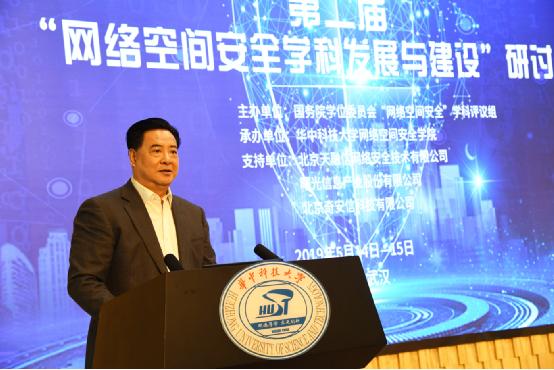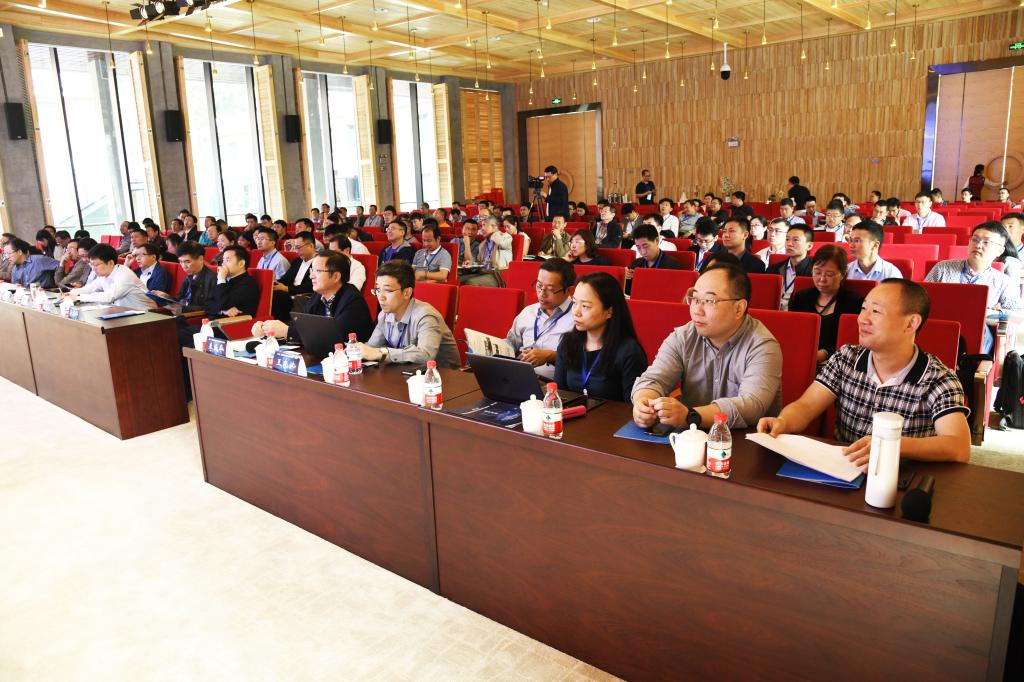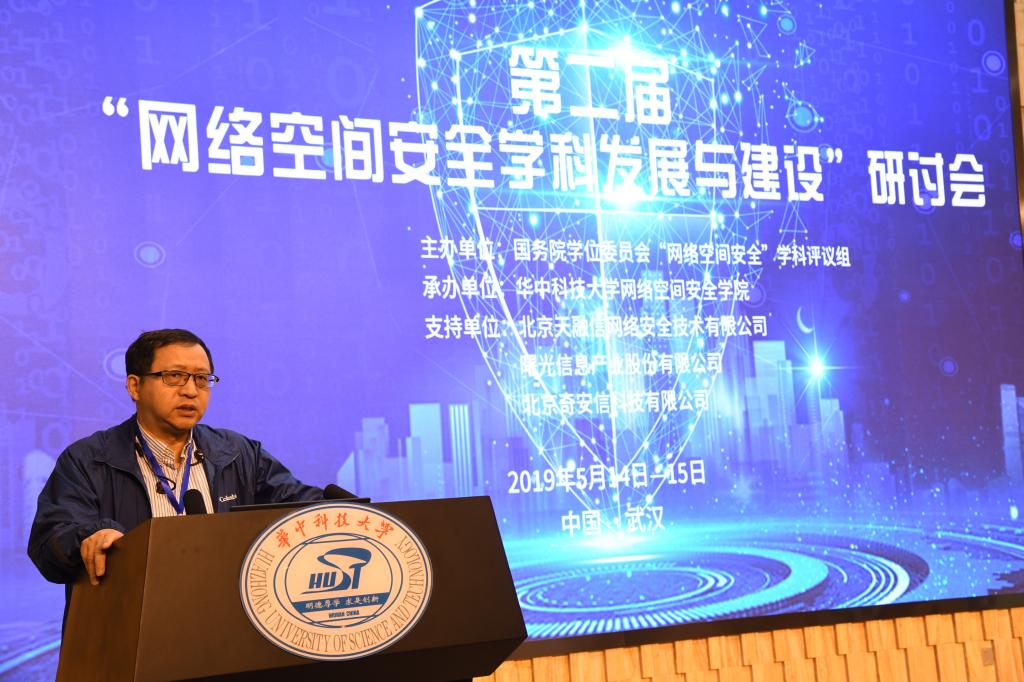
News.hust.edu.cn (Correspondent: Wang Quan) On May 14, the Opening Ceremony of the 2nd Seminar on Disciplinary Development and Construction of Cyberspace Security, hosted by the Cyberspace Security Discipline Appraisal Group (CSDAG), Academic Degree Commission of the State Council, organized by the School of Cyberspace Security, Huazhong University of Science and Technology (HUST), took place at Mingde Hall, Wutongyu Academic Center. Present were Fang Binxing and Wu Jianping, the conveners of CSDAG and members of the Chinese Academy of Engineering, heads of the Administrative Office of the Academic Degree Commission of the State Council, as well as over 140 experts from universities, research institutes and enterprises. Li Fenghua, a member of CSDAG and a researcher at the Institute of Information Engineering, CAS, hosted the opening ceremony. Li Yuanyuan and Ma Jianhui, leaders of HUST, attended the opening ceremony.

Li delivered an address. He introduced HUST's history, campus environment, talent training and discipline construction. HUST established the Information Security Laboratory in the 1980s; set up the information security major, and established master degree and doctorate grant points in 2002; recruited undergraduates, master students and doctoral students from 2003, said he. HUST is one of the first domestic universities offering the information security major. HUST has made all-out efforts to run the School of Cyberspace Security, included it as a "special area" for education and teaching reform, implemented diversified and individualized modes of innovation talent training to explore talent training through production-teaching and science-education coordination, and given full play to the demonstrative, radiating and leading role of the "special area" for talent training.
Luan Zongtao, Director of the Administrative Office, the Academic Degree Commission of the State Council introduced high-level talents training and development in the country. Currently degree and graduate education has entered a golden period, said he, hoping that relevant entities would grasp the opportunity to train talents capable of assuming the great mission to accomplish national rejuvenation in the new era. Referring to discipline construction, he suggested giving top priority to morality education and character cultivation, developing persistently to serve national needs, fully mobilizing educational resources from all sides and deeply arousing the enthusiasm of disciplinary faculty.

Fang introduced the international development of the cyberspace security discipline. To promote the development of the discipline, we must make "soft" and "hard" preparations, said he. The "hard" preparation is fully mobilizing and rationally using favorable conditions offered by the country in talent training; the "soft" preparation is that relevant staff should probe into teaching methods, and rationally work out scientific principles and indexes of teaching appraisal. He hoped that the experts present would offer constructive discipline appraisal opinions through the seminar.

Wu introduced the new progress of cyberspace security discipline construction at home and abroad. He shared his thought on cyberspace security discipline construction from the basic content of first-level university discipline construction, the consideration of the need to set up the first-level cyberspace security discipline and foreign universities' cyberspace security curriculum systems. He stressed that we should attach great importance to discipline features, strengthen high-level research, value engineering training, highlight high-level talent training, and pay attention to international exchanges and cooperation.

Following the opening ceremony, the members of CSDAG, university experts and enterprise experts made presentations on discipline construction.
At a session on May 15, experts and scholars from research institutes, universities and enterprises across the country discussed the basic theory of cyberspace security and cryptography, network and system security, content and application security, and other issues, exchanged ideas on issues such as the training program for cyberspace security students, curriculum system, core course and textbook construction, enterprise-university-institute collaboration and international cooperative training, and explored a scientific cyberspace security discipline construction system.
